- Category
- Life in Ukraine
Why Dutch Soldiers and Ukrainian Veterans Ran 2,000+ km With 12 kg on Their Backs to Kyiv
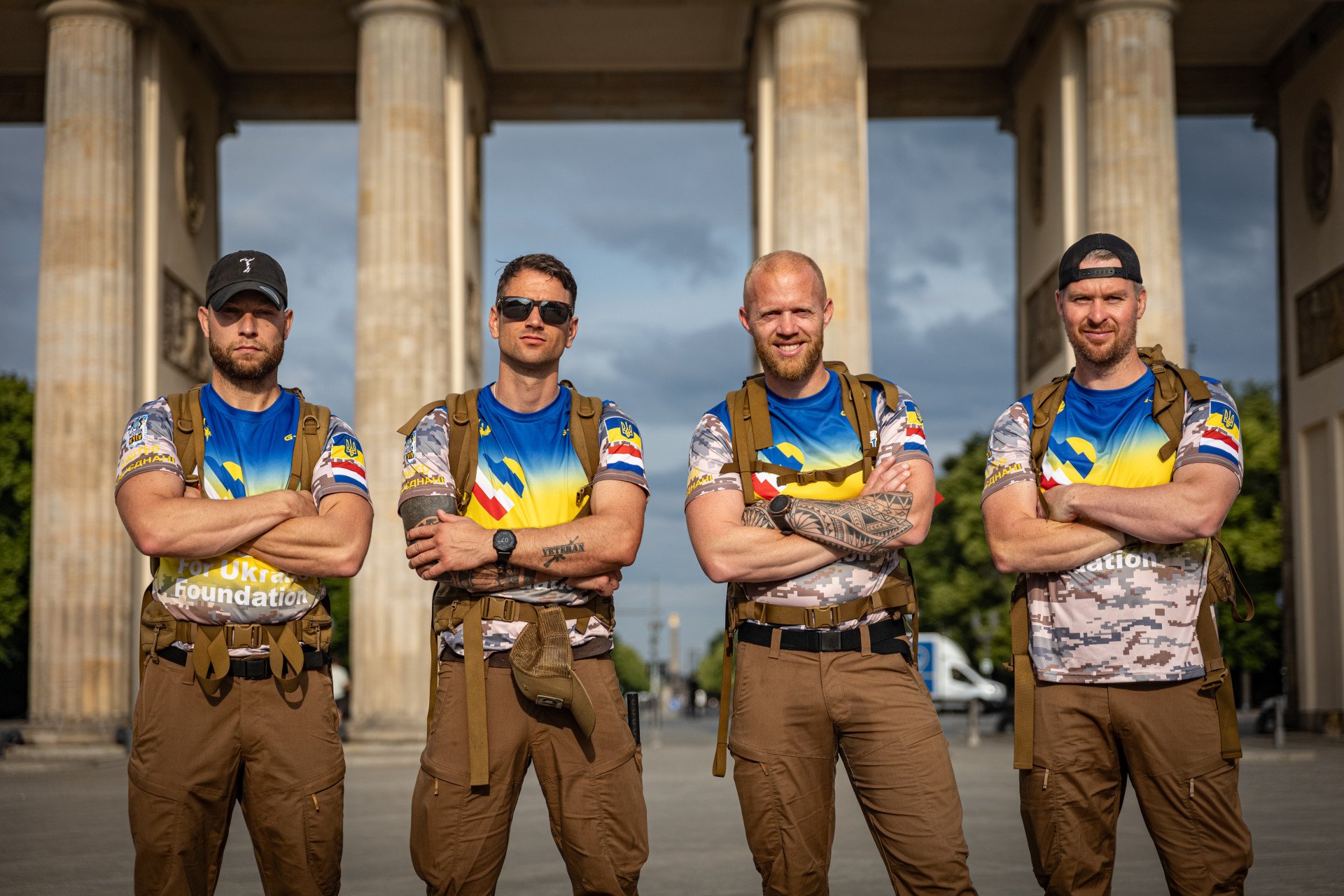
When the sun is high on June 1, four Dutch and four Ukrainian servicemen descend the porch of the Defense Ministry in the Netherlands. Ahead of them: 2,600 kilometers to Kyiv in just 21 days, a charity march to confront PTSD and raise funds for those still battling its invisible scars.
Dubbed “Mission Kyiv,” the 2,600 km charity run from The Hague to Kyiv aims to raise money for medical supplies, the rehabilitation of Ukrainian veterans, and awareness of PTSD. The event is organised by the “Netherlands for Ukraine Foundation” (NL4UA) and was the initiative of Dutch Marine and author Robin Imthorn, who has written about his personal struggles with PTSD.
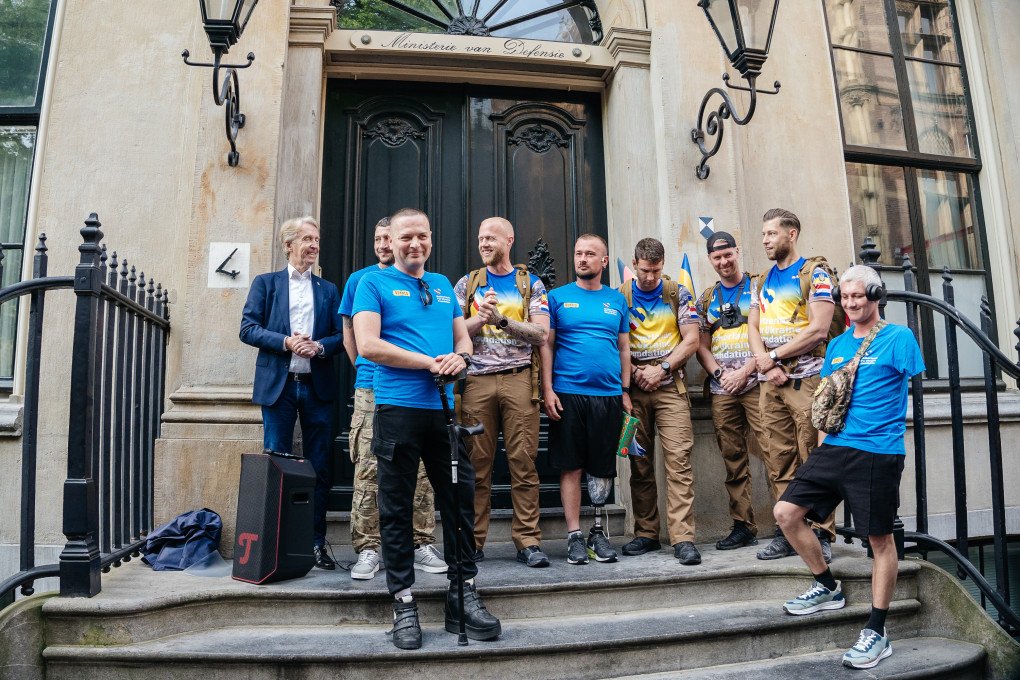
As every long journey begins with one step, not all of them end with collecting 120,750 euros ($140,000), the amount raised by NL4UA. Its co-founder, Kseniya Negrutsa-Godska, describes the fundraising mission as serving two goals: “delivering tangible support—tourniquets (1,000), medical supplies, and psychological care for Ukrainian veterans—while also showing that every person can contribute to the fight against evil”.
Some of the funds would go towards medical evacuations and the support of Ukrainian patients undergoing rehabilitation in the Netherlands and mental health centers, including Lisova Polyana in Kyiv.
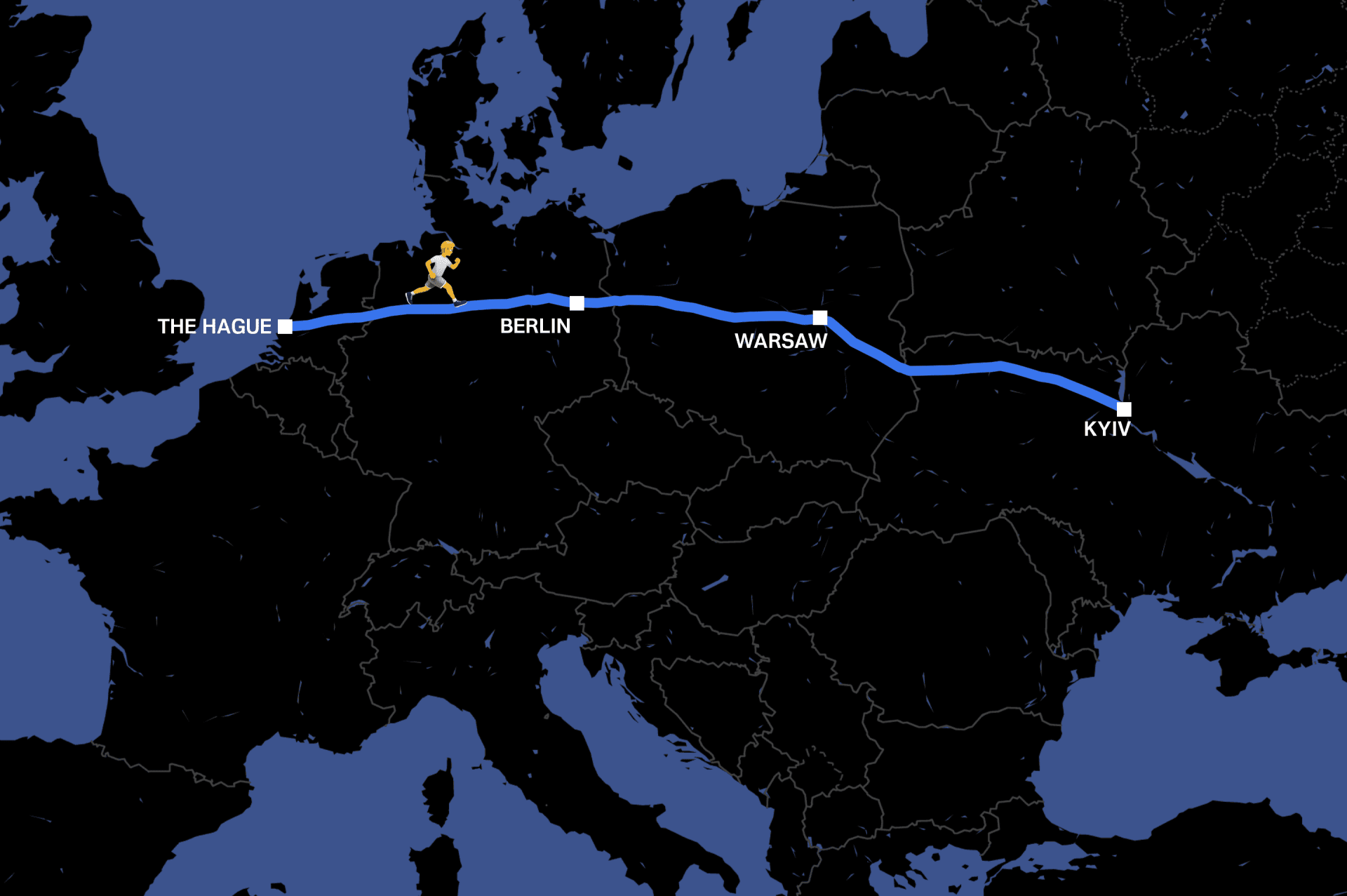
Veterans running with war injuries and PTSD
Robin and his Dutch compatriots Damion, Tjeerd, and Randy, as well as Ukrainian veterans Volodymyr, Yevhen, Milan, and Serhii, covered a shared distance of up to 120 kilometers a day, while carrying 12 kg backpacks to symbolise the psychological burden that veterans carry. Team leader Robin is no stranger to a gruelling challenge. Previous fundraisers for mental health support for war veterans include running 250 km through the desert heat in Namibia and a 25-hour forced march carrying 45kg.
The Ukrainian veterans running alongside Robin came to the Netherlands for treatment with the help of the NL4UA foundation, which, so far, has brought 148 severely ill and wounded Ukrainians to the country since the start of Russia’s full-scale war. Despite being heavily injured on the frontline, they are still ready to achieve their goal of reaching 2000 km to the Polish-Ukrainian border, before returning to the Netherlands for ongoing rehabilitation. “Two are missing limbs while the other two have injuries in both wrists and both legs”, said Kseniya.
The Dutch team intended to run the whole 2,600 km to Kyiv. However, as active NATO military personnel, they were not permitted to cross into Ukraine at the request of the Dutch Defense Ministry. To accomplish the full mission, the Ukrainian mental health lab “DoLadu” would fill in the gap and organise runners to carry the baton the last 600 km from the Polish-Ukrainian border to Kyiv.
DoLadu, another fundraiser recipient, is a psychological support project for soldiers, veterans, their families, and heroes participating in overcoming the consequences of war. Founder Khrystyna Kurganska says their programs are “designed to rebuild a person and give them new incentives, dreams, and most importantly—tools to move forward. The Mission Kyiv march is our chance to remind society about invisible wounds, about the importance of supporting those who are returning, about the fact that life continues despite everything.”
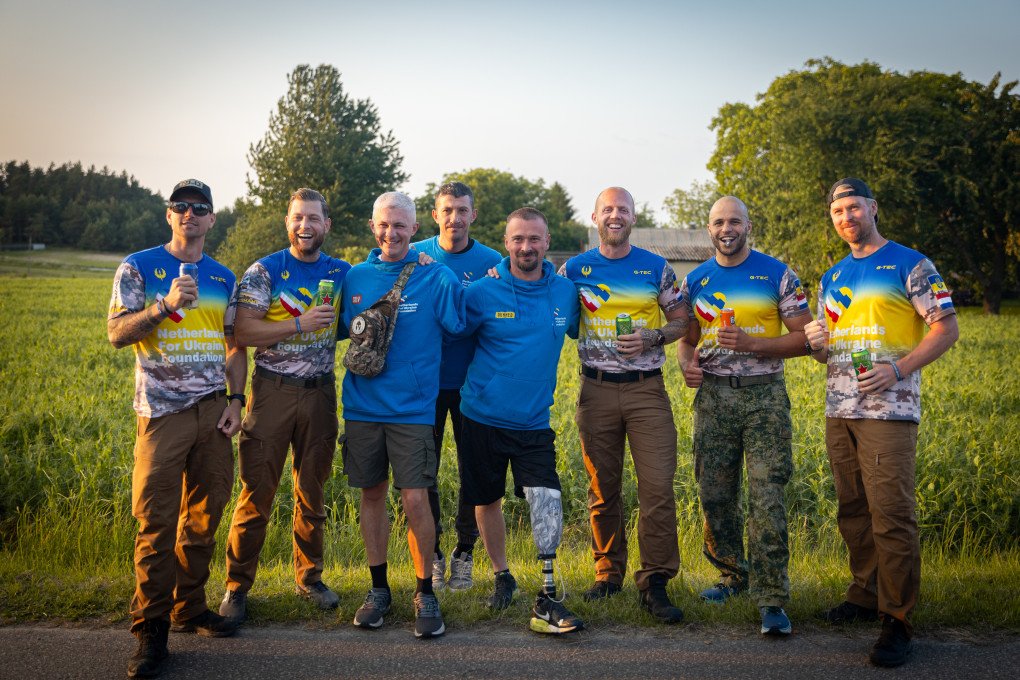
During the handover ceremony at the border, Robin recounts:
“We ran 2,000 km through pain, silence, and always with fire, not to make a point, but to make a promise: that our brothers in Ukraine do not stand alone. Not in war, not in memory, not ever.”
To reach this point, the team had passed hundreds of villages and towns and encountered thousands of well-wishers and supporters along the way in the Netherlands, Germany, and Poland. Now, it was up to three Ukrainian veterans, Ihor, Yurii, and Oleksandr, to continue the journey through the towns and villages of the Volyn, Rivne, and Zhytomyr regions all the way to Kyiv.
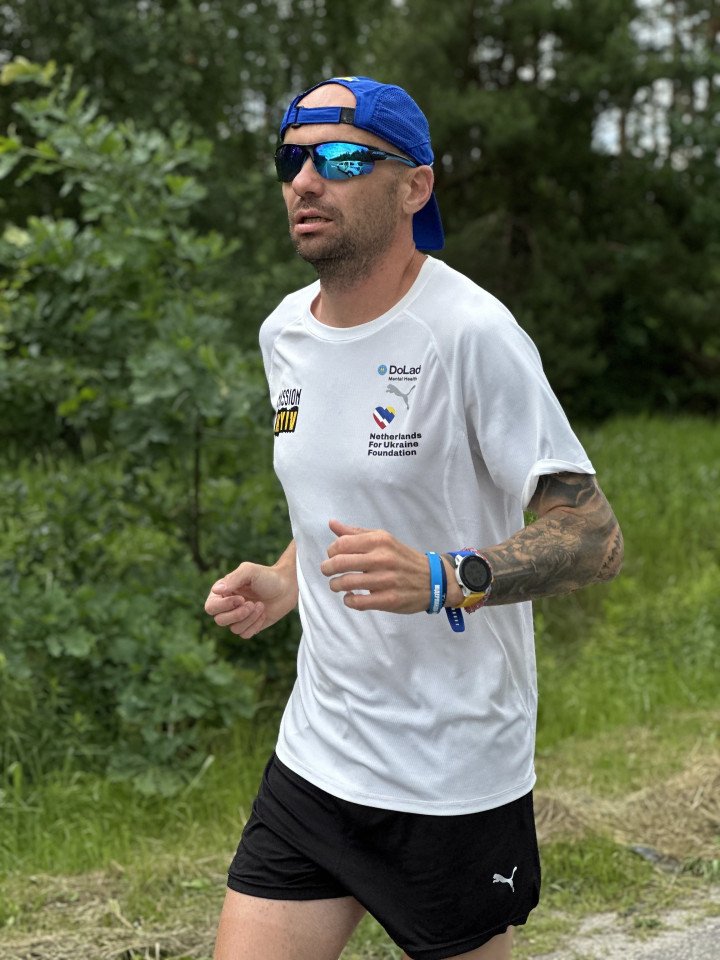
The route: march across Ukraine
Robin offers them a heads up: “It’s a long run,” which shouldn’t thwart the new team, least of all Oleksandr, who previously completed a marathon in 2 hours and 48 minutes. However, the goal was to reach Kyiv’s Independence Square on Saturday, June 21st, giving them 7 days to achieve 600 km, the equivalent of a marathon each per day. In a show of solidarity, locals would join in, though not always keep up, especially for the last few kilometres when approaching a day’s end.
Regional police cars escorted the team to keep them safe on the highway, where villagers and townsfolk would come to offer up cash donations and words of encouragement. When passing Rivne, a line of school children was eagerly waving national flags at the finish line, chanting praises to the runners, one of whom achieved 57 km in a single day. On the segment from Zviahel to Zhytomyr, three friends of NL4UA—two Dutchmen and an Englishman—accompanied the run for a combined 70 km in their show of support.
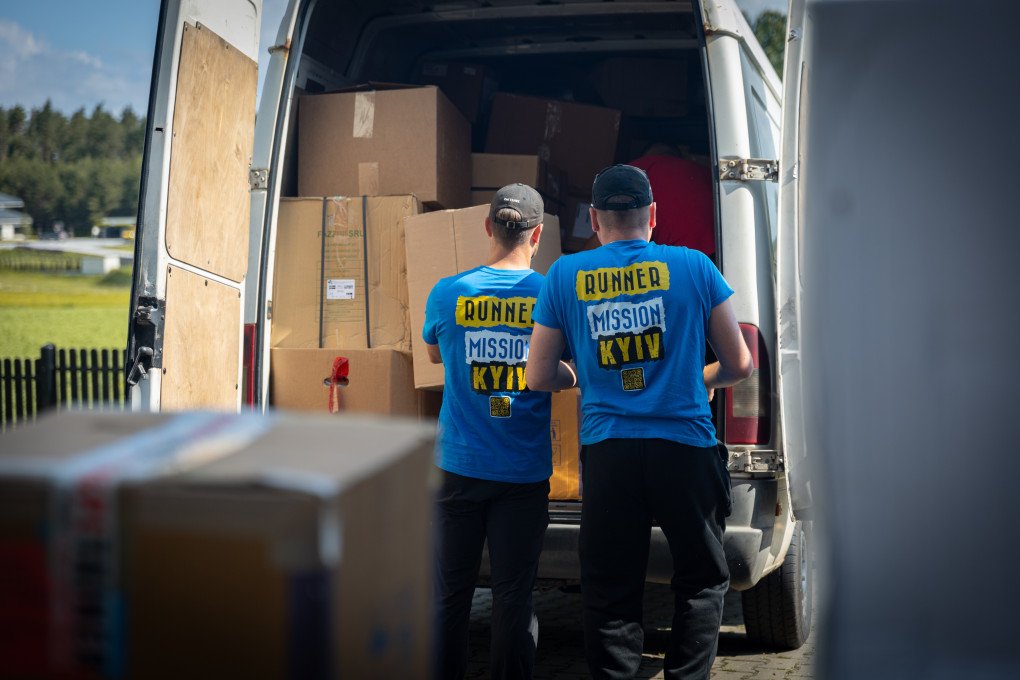
Right on schedule, the team reached the Ukrainian capital on Saturday afternoon, June 21st. The final jog was a gruelling uphill past the Botanical Gardens and a bright, red painted university to the Taras Shevchenko Park. Ready to welcome the runners were veterans with their families, charities, including the organisers from the Netherlands, and various media outlets. Together, they would march the final leg down Kyiv’s main thoroughfare, Khreschatyk, waving banners and spurred on by an MC loudspeaker, counting down every 100 meters while informing onlookers about the run’s origins.
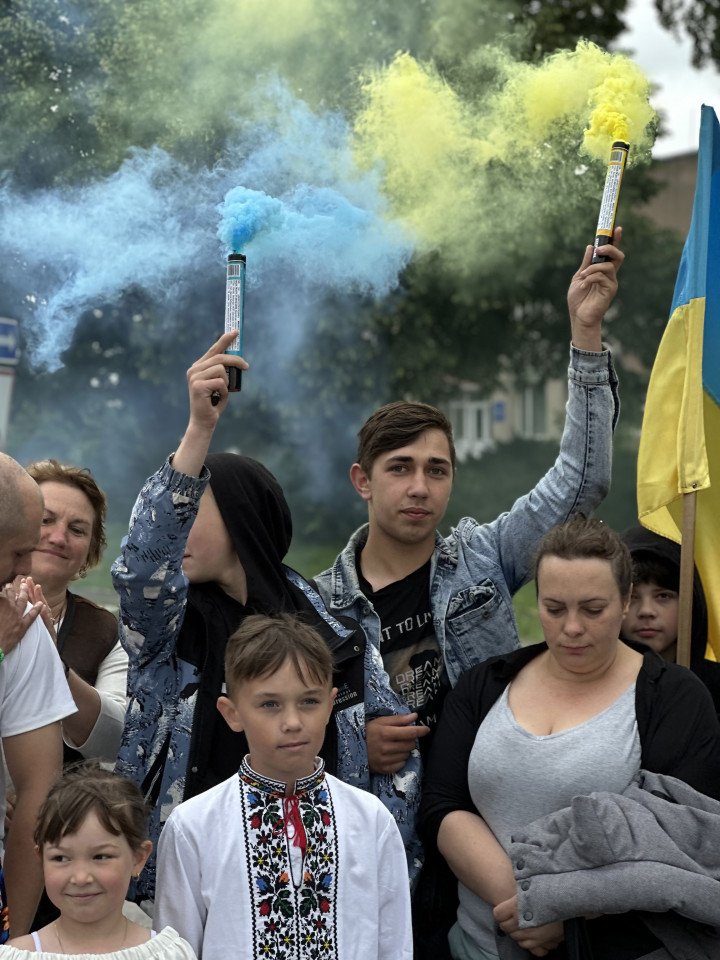
A growing crowd on Kyiv’s Maidan observed a moment's silence while veteran runners Ihor, Yurii, and Oleksandr laid flowers in tribute to fallen Ukrainian defenders. Among those who could hear the MC—now playing the national anthem—and watching the ceremony was Robin Imthorn and the others who had started the run back in The Hague. They were patched in on a video call to the Netherlands and got to see for themselves the moment Mission Kyiv was accomplished. Thousands of kilometers and over a hundred thousand in donations later, the rehabilitation for the mental health of Ukrainian soldiers just received a necessary bolstering. The message from Robin is clear:
"Resilience isn't about suppressing struggle, it's about confronting it, owning it, and turning it into strength."
-050b2b5554ed561c87f909a001f905b9.png)
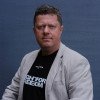
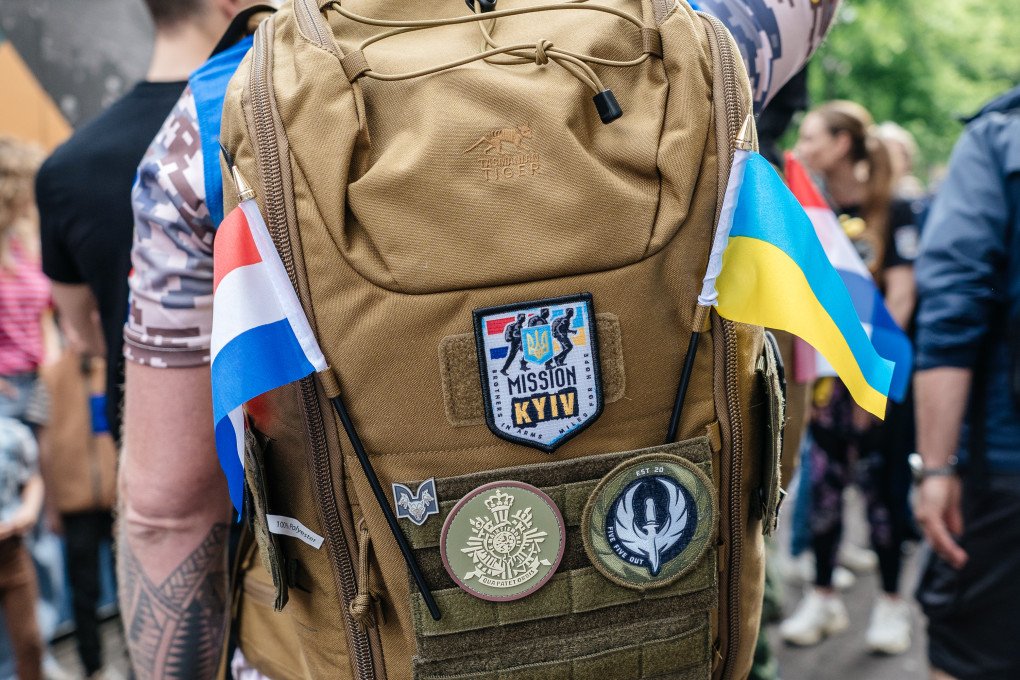
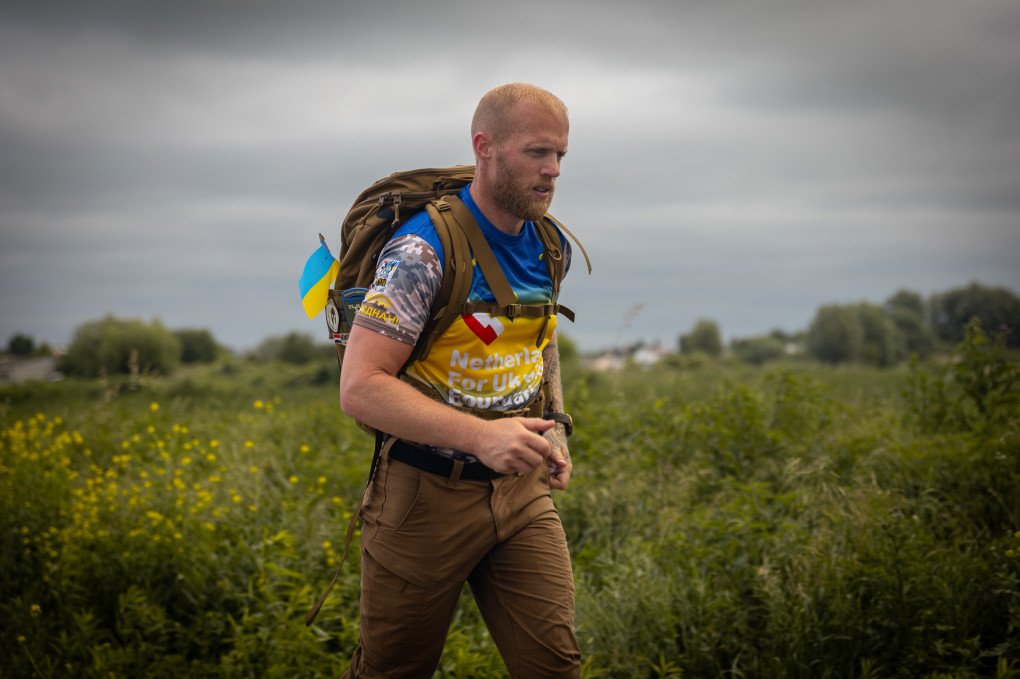
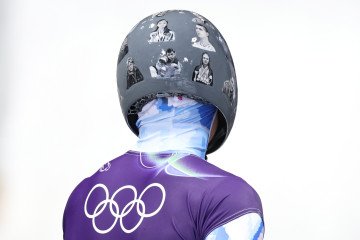

-6ead6a9dd508115a5d69759e48e3cad1.jpg)
-29a1a43aba23f9bb779a1ac8b98d2121.jpeg)
-7f50738271c122a9b5e663cb80703dd6.jpg)

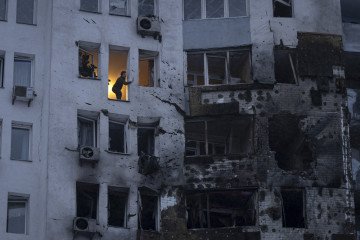
-554f0711f15a880af68b2550a739eee4.jpg)